One of the technological areas with the quickest rate of growth is still cloud computing. There is a greater need than ever for qualified cloud workers due to the growing use of cloud services by companies of all kinds. If you’re looking to start a career in cloud computing or transition into this domain, 2025 presents ample opportunities. The necessary skills, certifications, learning routes, and job search tactics are all covered in this article’s step-by-step approach to landing a career in cloud computing.
A revolutionary technology called cloud computing allows you to store a vast quantity of data in one location—the cloud—without worrying about losing it.
It has become one of the most crucial tools in the information technology landscape since it aids in the development of company strategy and plays a key role in simplifying and improving people’s lives.
Become an AWS Expert! Get Certified with the AWS Course in Pune—Sign Up Today!
Understanding Cloud Computing
It is crucial to comprehend what cloud computing is and its importance in the IT sector before beginning the process of finding a job in this field.
Increased flexibility, improved scalability, lower expenses, and ease of access are some of the main advantages of cloud computing for a business. When properly utilized, it also offers improved security, protecting businesses from many calamities. Businesses can engage with clients much more easily because of the increased agility it provides.
By using cloud computing, the company’s capital expenditure is greatly reduced. Utilizing local systems costs the business a lot of money. With cloud computing, these needless costs are removed.
Additionally, it gives businesses unrestricted movement and accessibility. Businesses may now store software programs and databases of critical data thanks to the revolutionary technology. All that is needed to access them at any time or place is an internet connection and devices that can connect to the internet.
The phrase “cloud computing” refers to the internet delivery of computer services, including databases, servers, storage, networking, software, and analytics. The three primary types of cloud computing services are as follows:
- One online service that provides virtualized computer resources is Infrastructure as a Service (IaaS).
- Platform as a Service (PaaS) offers a development environment for building, testing, and deploying applications.
- Software as a Service (SaaS): This approach uses the internet to provide software packages, eliminating the need for installation and maintenance.
Advance Your IT Career with Pune’s Top AWS Course—Join Now!
Step 1: Develop a Strong Cloud Computing Foundation
To land a job in cloud computing, you must have a solid understanding of fundamental cloud concepts. Here are some key areas to focus on:
- Cloud Service Models (IaaS, PaaS, SaaS)
- Deployment Models (Public, Private, Hybrid, Multi-cloud)
- Networking Basics (DNS, TCP/IP, VPN, Load Balancers)
- Virtualization & Containers (Docker, Kubernetes, Hyper-V, VMware)
- Operating Systems (Linux, Windows Server)
- Security & Compliance (IAM, Firewalls, Encryption)
Step 2: Choose a Cloud Platform to Specialize In
Major cloud service providers dominate the market, and gaining expertise in at least one of them will improve your job prospects. The most popular platforms include:
- Amazon Web Services (AWS): The top cloud provider offering services in databases, AI/ML, storage, computation, and more.
- Microsoft Azure—Popular among enterprises, especially those using Microsoft products.
- Google Cloud Platform (GCP): well-known for its artificial intelligence and data analytics skills.
- IBM Cloud, Oracle Cloud, Alibaba Cloud—other key players offering specialized solutions.
Step 3: Get Certified in Cloud Computing
Certifications validate your skills and improve your chances of landing a cloud computing job. Here are some of the most valuable cloud certifications in 2025:
- AWS Certified Cloud Practitioner (Beginner)
- AWS Certified Solutions Architect – Associate/Professional
- AWS Certified DevOps Engineer
- Microsoft Azure Certifications
- Microsoft Certified: Azure Fundamentals
- Microsoft Certified: Azure Solutions Architect Expert
- Microsoft Certified: DevOps Engineer Expert
- Google Cloud Certifications
- Google Cloud Digital Leader
- Google Associate Cloud Engineer
- Google Professional Cloud Architect
Step 4: Learn Key Cloud Computing Skills
Beyond certifications, you must develop hands-on skills to succeed in a cloud computing career. Some of the critical skills include:
Programming & Scripting
Python, Java, JavaScript, Go, Ruby
Bash & PowerShell for automation
Cloud Infrastructure & Deployment
Terraform & CloudFormation for Infrastructure as Code (IaC)
CI/CD pipelines (Jenkins, GitHub Actions, Azure DevOps)
Big Data & AI in Cloud
AWS Data Pipeline, Google BigQuery, Azure Synapse Analytics
AI/ML cloud services like AWS SageMaker, Azure AI, Google Vertex AI
Step 5: Gain Hands-On Experience
Certifications and theoretical knowledge are valuable, but hands-on experience is crucial. Here’s how to gain practical experience:
Set Up Your Own Cloud Projects: Use AWS Free Tier, Azure Free Account, or GCP Free Trial to build and deploy applications.
- Contribute to Open-Source Projects: Join GitHub projects that involve cloud technologies.
- Freelance & Internships: Take on freelance projects or internships to build your portfolio.
- Hackathons & Cloud Competitions: Participate in cloud-based hackathons to solve real-world challenges.
Step 6: Create a Powerful LinkedIn Profile and Resume
Your cloud computing expertise, credentials, and projects should be highlighted on both your LinkedIn page and CV.
Resume Tips:
- Use clear headings (Skills, Certifications, Experience, Projects)
- Mention cloud-related certifications
- Provide links to GitHub or individual websites to highlight practical projects.
- Highlight any work experience in cloud computing
Step 7: Apply for Cloud Computing Jobs
Once you have the necessary skills and experience, start applying for cloud computing roles. Among the most common job titles in cloud computing are:
- Cloud Engineer
- Cloud Architect
- DevOps Engineer
- Cloud Security Specialist
- Site Reliability Engineer (SRE)
- Cloud Consultant
- To locate job openings, use websites such as Indeed, Glassdoor, LinkedIn, and corporate career pages.
Step 8: Prepare for Cloud Computing Job Interviews
Cloud job interviews often involve technical questions, coding challenges, and case studies. Here’s how to prepare:
- Review Cloud Fundamentals: Be ready to explain key concepts and services.
- Develop Your Coding Skills: Work through coding challenges on sites such as LeetCode, CodeSignal, or HackerRank.
- Mock Interviews: Practice with peers or use services like Pramp and Interviewing.io.
- Behavioral Questions: Be prepared to discuss your experience, problem-solving skills, and teamwork.
Conclusion
Getting a job in cloud computing in 2025 requires a combination of foundational knowledge, certifications, practical experience, and networking. You may establish yourself as a compelling candidate for cloud positions by completing the actions described in this guide. Now is the ideal moment to enter the cloud industry because of the growing need for cloud specialists. Maintain consistency, never stop learning, and welcome new challenges if you want to succeed in the cloud computing industry.
Students are being encouraged to pursue careers in cloud computing since it is changing the overall job landscape in the nation. Numerous positions are now accessible in the market as businesses have begun to realize how important cloud computing is for security, technical advancement, and ease of access, among many other reasons.
The circumstance is expected to draw countless students who are ordinarily not especially inclined towards pursuing a career in the IT area. Get AWS Certified with Industry-Leading Training in Pune—Register Now!
Cloud computing is, without a doubt, the most recent development in the IT industry!

